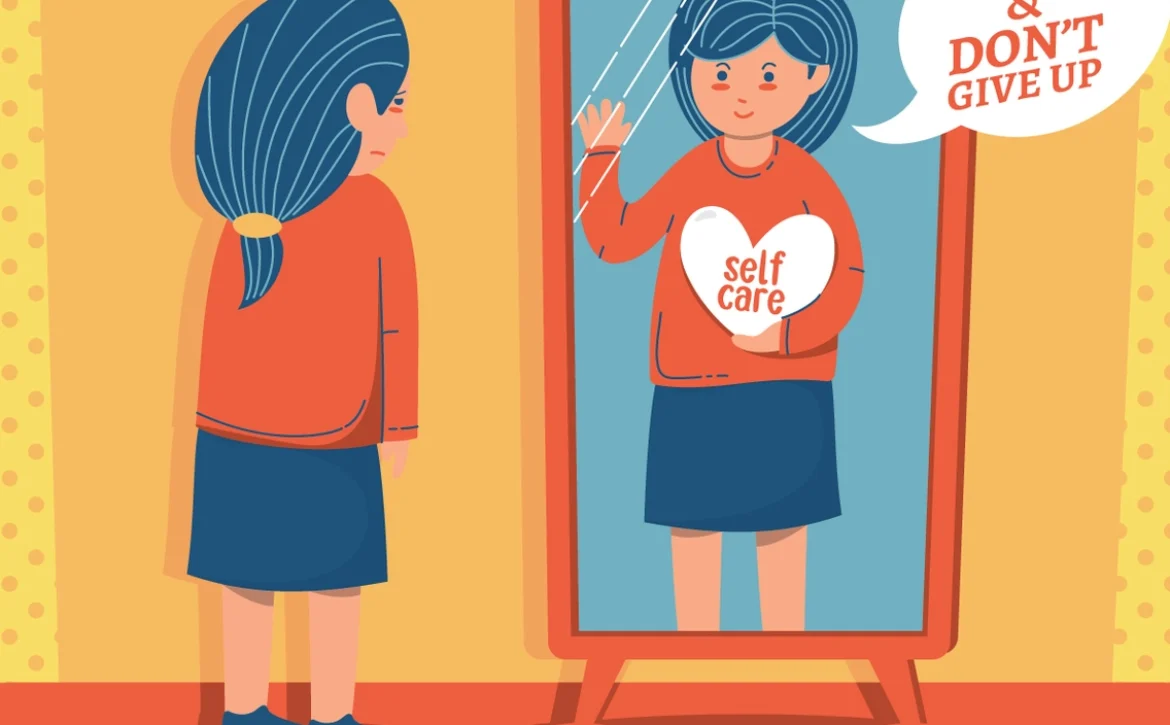In the swirling tempest of global crisis, from pandemics to social upheavals, the need for self-care stands as a lighthouse amid turbulent seas. Now, more than ever, as the world grapples with uncertainty and adversity, the importance of nurturing our mental and emotional well-being cannot be overstated. Amidst the chaos, Cedarway Therapy’s virtual therapy Ontario emerges as a beacon of hope, offering a lifeline to those seeking solace and support in navigating the stormy waters of self-care during times of crisis in the world.
Understanding the Weight of the World
First things first, acknowledging the weight that global crises place on our shoulders is crucial. It’s not just about the collective impact but the personal, intimate ways in which these events disrupt our lives. From sleepless nights worrying about the future to the constant stress of adapting to a “new normal,” the strain is real and palpable. Read our blog post “How to Talk to Children About Crisis in the World” to guide you on how to make children understand the complexities of the world around them.
In Ontario, as in many parts of the world, we’ve witnessed firsthand how these crises can morph from headlines to personal stories, affecting our communities, families, and our very sense of stability. It’s in these moments of shared vulnerability that the importance of self-care becomes most evident.
Tips for Navigating Crisis
- First off, it’s okay not to be okay. Crises are fraught with emotions — fear, anger, sadness, you name it. Virtual therapy can provide a safe space to unpack these feelings with someone who’s trained to help you navigate them. It’s like having a guide through the emotional wilderness. Set limits on your news consumption and social media scrolling. Maybe check the news once in the morning and once in the evening — and that’s it. Your brain will thank you.
- When the world feels like it’s in disarray, having a daily routine can provide a sense of normalcy. Virtual therapy can be a part of this routine. Scheduling regular sessions gives you something to count on, a checkpoint in your week where you can focus on your mental health. Exercise isn’t just good for the body; it’s a powerhouse for mental health. You don’t have to run a marathon. A daily walk, some yoga, or a dance party in your living room can work wonders for your mood. Isolation can amplify the effects of a crisis, making everything feel ten times heavier. Virtual therapy offers a connection in times of isolation, but don’t stop there. Reach out to friends and family, even if it’s just a quick text or a Zoom call. We’re social creatures, after all.
- Mindfulness can help ground you in the present moment, while gratitude shifts your focus from what’s wrong in the world to what’s right. Start or end your day by listing three things you’re grateful for. You might be surprised by how much this can shift your perspective. If you’re feeling the strain, now might be the time to explore virtual therapy. Ontario has a wealth of options, from one-on-one counseling to group sessions and everything in between. Look for services that suit your needs and preferences — and don’t be afraid to “shop around” until you find the right fit.
Recommendations for Managing Mental Health During Times of Crisis
Managing mental health during times of crisis is crucial, not only for maintaining personal well-being but also for ensuring that we can effectively navigate the challenges that come our way. Whether it’s a global pandemic, economic downturns, social unrest, or personal hardships, crises can significantly impact mental health. Here are comprehensive recommendations for managing mental health during such times:
Stay Connected with Your Support System
Isolation can exacerbate feelings of anxiety and depression. Make an effort to stay connected with friends, family, and loved ones, even if it’s virtual. Regular check-ins via phone, video calls, or messaging can help maintain a sense of normalcy and provide emotional support.
Limit Exposure to News and Social Media
While staying informed is important, constant exposure to distressing news can heighten anxiety. Set specific times to check the news or social media and stick to reliable sources to avoid misinformation, which can cause additional stress.
Maintain a Routine
Crises often disrupt daily routines, which can add to feelings of instability. Try to establish a new routine that includes regular sleep patterns, healthy eating, work or study times, and leisure activities. This can provide a sense of order and normalcy.
Exercise Regularly
Physical activity is a powerful stress reliever. It doesn’t need to be intense or time-consuming; even a daily walk or a short home workout can help release endorphins, improve mood, and reduce anxiety.
Practice Mindfulness and Relaxation Techniques
Techniques such as meditation, deep breathing exercises, or yoga can help center your thoughts and reduce the physiological symptoms of stress. There are many free resources online that can guide you through these practices.
Prioritize Sleep
Quality sleep is vital for mental health. Aim for 7-9 hours per night and establish a calming pre-sleep routine to improve sleep quality. Avoid screens before bed, reduce caffeine intake in the afternoon, and create a comfortable sleep environment.
Seek Professional Help
If you find that stress or anxiety is interfering with your daily life, consider seeking help from a mental health professional. Many therapists offer virtual sessions, making it easier to access support from the safety and comfort of your home. Searching for “Virtual Therapy Ontario” on Google can help you find local services if you’re in that region. A professional can guide you about self-care during times of crisis in the world more than any article or video you see on the internet today.
Engage in Activities You Enjoy
Make time for activities that bring you joy and relaxation. Whether it’s reading, gardening, painting, or any other hobby, engaging in enjoyable activities can provide a necessary distraction and boost your mood.
Set Realistic Goals
Setting small, achievable goals can provide a sense of accomplishment and purpose. These can be as simple as completing a household task, exercising for 20 minutes, or finishing a book.
Practice Gratitude
Focusing on the positive aspects of your life can shift your perspective and reduce feelings of despair. Try keeping a gratitude journal and write down three things you’re grateful for each day.
Limit Substance Use
While it may be tempting to use alcohol or drugs as a coping mechanism, they can worsen anxiety and depression in the long run. If you’re struggling with substance use, seek professional help.
Be Kind to Yourself
Remember, it’s okay to not be okay. Be compassionate with yourself and recognize that feeling stressed, anxious, or upset is a normal reaction to crises. Allow yourself to feel these emotions without judgment.
A Lifeline in Ontario
The concept of therapy has evolved dramatically over the years, breaking down many of the stigmas previously associated with seeking mental health support. Enter virtual therapy, a modality that has not only made therapy more accessible but has also provided a lifeline to many during times of global crisis. Virtual therapy in Ontario offers several unique advantages. For starters, it’s accessible from the comfort of your own home, removing the barriers of transportation and mobility that can deter many from seeking help. It also provides a level of anonymity and privacy that can make opening up about personal issues less daunting.
Most importantly, virtual therapy provides flexibility and immediacy. During crises, when the world feels like it’s changing by the minute, being able to connect with a therapist or counselor at a moment’s notice can be incredibly comforting. It ensures that support is there when you need it most, whether it’s for managing anxiety, coping with loss, or navigating the sea of emotions that crises inevitably bring.
Finding the Right Virtual Therapy in Ontario
The rise of virtual therapy options means that finding the right fit for you is more important than ever. It’s essential to research and choose a therapist or counseling service that aligns with your needs and preferences. Look for licensed professionals with experience in areas relevant to your challenges, whether it’s anxiety, depression, stress management, or trauma.
Many virtual therapy platforms in Ontario also offer introductory sessions or consultations, allowing you to get a feel for the therapist’s style and approach before committing. This can be particularly helpful in ensuring that the therapy provided resonates with you and makes you feel supported.
Embracing the Journey of Self-Care and Healing
Embarking on a journey of self-care and healing, particularly during times of crisis, is a profoundly personal experience. It requires patience, compassion, and an openness to change and growth. Remember, it’s okay to not be okay, and seeking support is a sign of strength, not weakness.
Virtual therapy in Ontario, with its accessibility and flexibility, can be a valuable tool in your self-care toolkit. Whether you’re dealing with the immediate impact of a global crisis or the lingering effects of past events, it provides a space to heal, learn, and grow.
The Road Ahead
As we navigate the uncertainties of our world, the importance of self-care and mental health support cannot be overstated. Crises, unfortunately, are part of the human experience. Yet, it’s how we respond to these challenges that defines our resilience and capacity for growth.
Virtual therapy in Ontario stands as a testament to our collective commitment to mental health and well-being. It offers a reminder that even in the darkest of times, support and healing are within reach. So, as we move forward, let’s carry with us the lessons of self-care, the value of seeking support, and the importance of taking care of our mental health.
In these challenging times, prioritizing your mental health is more crucial than ever. Cedarway Therapy offers a haven for those seeking guidance and support through virtual therapy in Ontario, ensuring you’re not alone in your journey toward well-being. Join us now, and let’s navigate the path of self-care together, turning moments of crisis into opportunities for growth and healing.
FAQs: Self-care During Times of Crisis in the World
What exactly is self-care during times of crisis?
Self-care during crises involves prioritizing your mental, emotional, and physical well-being through activities like mindfulness, setting boundaries with media consumption, and seeking support from loved ones or professionals to navigate challenges effectively.
How can I practice self-care when everything feels overwhelming?
Start with small, manageable steps such as taking short breaks to breathe deeply, engaging in activities that bring you joy, and reaching out for support from trusted individuals or mental health professionals to help you cope with the stress.
Is self-care during times of crisis in the world selfish when there are so many pressing issues?
No, self-care is essential for building resilience and maintaining the strength needed to address challenges effectively. By taking care of yourself, you’re better equipped to support others and contribute positively to the world around you.
What if I don’t have the time or resources for self-care during times of crisis in the world?
Self-care doesn’t have to be time-consuming or expensive. Even simple practices like taking a short walk, practicing gratitude, or setting boundaries with technology can make a significant difference in managing stress and promoting well-being.
How can I incorporate self-care into my daily routine during a crisis?
Start by identifying activities that nourish your mind, body, and spirit, then schedule them into your day like you would any other important task. Consistency is key, so aim to prioritize self-care even when life feels chaotic.











